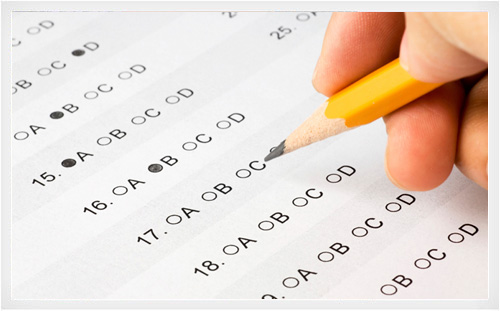Sen. Brewster Challenges Credibility of Standardized Testing
McKeesport – September 21, 2012 – Questioning the wisdom of the expanded use of standardized testing to determine student and school performance, school district distress and teacher proficiency, state Sen. Jim Brewster today called for a complete review and upgrade of the current system to better reflect real performance in the classroom.
 “Pennsylvania is doubling down on the application of flawed student testing that costs way too much, is administered by an out-of-state company, and is unfairly used to evaluate teachers and schools,” Brewster said (D-McKeesport). “The test results may also result in forced public school mergers, increased local school taxes and the sickening of fiscally healthy schools.
“Pennsylvania is doubling down on the application of flawed student testing that costs way too much, is administered by an out-of-state company, and is unfairly used to evaluate teachers and schools,” Brewster said (D-McKeesport). “The test results may also result in forced public school mergers, increased local school taxes and the sickening of fiscally healthy schools.
More than 70 percent of school districts have increased their local taxes since education funding was slashed in Gov. Corbett’s state budgets.”
Brewster said that it was the wrong approach to be so heavily reliant on a system of student testing that has been panned by the education community as an ineffective tool to measure student performance.
“Using unreliable student testing for student, school or teacher evaluations is a simplistic approach that blames rather than repairs,” Brewster said.
According to Brewster, the adherence to testing to evaluate student and school performance was the product of former President George W. Bush’s federal No Child Left Behind (NCLB). After rounds of underfunding and plenty of confusion and controversy, schools administer the Pennsylvania System of School Assessment (PSSA) tests to evaluate student proficiency. These will soon be succeeded by Keystone Exams. To date, 31 states have opted out of the NCLB because the goals are unattainable.
The tests are administered and processed through a Minnesota company that has a contract for the PSSA test through 2014 and will process the Keystone Exams once that test replaces the PSSA. The Keystone Exams contract runs from 2009 through 2015 and will cost $200 million. The costs for the tests this year top $50 million.
NCLB requires that students achieve 100 percent proficiency in reading and math by 2014. In 2010-11, 73.5 percent of Pennsylvania students were advanced or proficient in reading. In math, Pennsylvania students scored 77.1 percent advanced or proficient.
Brewster said that he has spoken to many professional administrators, teachers and students from the education community about the tests and their applicability. He said that in the view of many educators the tests fail to account for socio-economic, environmental, economic disparities and cultural differences.
Additionally, according to Brewster, districts have taken to teaching to the test as a means to ensure that they make yearly performance benchmarks. This takes away a teachers ability to use their individual skills and their creativity to meet the needs of the students.
“The student evaluation system is unfair and skewed. Meanwhile, the gap between resource-rich schools and those struggling financially continues to widen,” Brewster said.
Brewster pointed to the new distressed school and expanded voucher-like tax credit laws that use test results as gauges of school achievement as examples of the expanded use of testing. Student test scores are also factored into the determination of whether a school is failing.
“We need a responsible system to ascertain the performance of teachers and the performance of schools and students,” Brewster said. “The dependence on an unsound evaluation system based on student test scores should not be the tipping point for a school or its students.”
Brewster said the stakes are too high and taxpayers need to understand that the state Department of Education is able to categorize a school district as non or underperforming. According to Brewster, that characterization has the potential to have a wide-ranging negative effect not only on for the school district itself but also for the communities that are part of the school district.
“How can local mayors and council market their communities when their school district has been identified as non or underperforming based on an evaluation system that in my opinion does not take into consideration all the factors necessary to educate our students?” Brewster questioned.
Brewster said that he plans to introduce a resolution to create a non-partisan commission composed of stakeholders such as administrators, teachers, parents and students to craft a reasonable, responsible and fair student performance assessment system.
-30-
